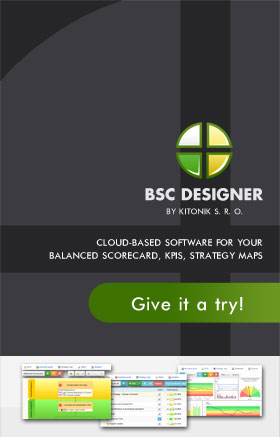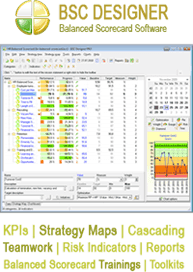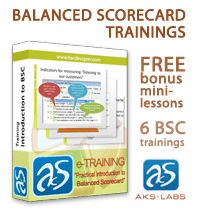Improving Management Processes through a Balanced Scorecard Case Study
A balanced scorecard case study provides management the means to evaluate the efficiency of existing structures, plans, implementation strategies, policies, human and financial resources management, and the monitoring systems of organizations, business related or otherwise. The case study itself can be part of the monitoring mechanism or an activity that is resorted to when there is glaring evidence that goals and objectives are not being met. It is also an efficient way for management to select the best management practices available for their organizations.
Most organizational problems stem from the inadequacies of people manning the organization. Not many will argue against this observation since people are responsible for planning and implementing. A complete and balanced scorecard will have appropriate mechanisms for matching jobs to the best people capable of accomplishing them well. Thus, a case study, while concerned with what might be wrong with certain strategies, always starts with how well people perform at their jobs. Often, it is not the quality of strategies or the appropriateness of policies themselves that emerges as primary reasons for failure, but the inadequacies of staff and personnel. So, a case study will not be too hasty to judge a policy as erroneous since, naturally, for it to succeed it must be implemented properly.
People might be doing their work well but still end up with output not aligned with objectives. Even with this, one cannot say for certain that the strategy is irrelevant. Sometimes, the monitoring process leaves something to be desired. One cannot expect a plan to work perfectly. A thing or two almost is bound to develop. This is where a good monitoring system is essential for without it, management cannot respond expeditiously to correct emerging issues. A case study should dwell at length on the efficiency of monitoring systems. The critical question that needs to be answered is: Is management getting the right information at the right time? If not, then essentially, the problem is solved. But if the answer is yes, the study should proceed to analyzing specific matters, like relevancy of plans and implementing methodologies.
It is not uncommon for management of many business ventures to fail because they failed to read internal and external conditions correctly. Objectives, plans, strategies, and policies as we know are dictated by these conditions. A dismal sales figure cannot automatically be attributed to poor people performance or poor product quality. It may have something to do with an uncompetitive marketing plan that includes many things – product promotion and advertising, pricing, packaging, distribution methodologies, and resources allocation. All these things involve appropriate policies and strategizing.
Sales may not be so bad but a company can still end on the red. Questions about the financial management acumen of top management may come up, and most often, it will be found out that certain financial decisions are not supported by realistic projections. This happens quite frequently among businesses with, at a glance, have robust financial balances, but are actually suffering from misaligned asset or expense distribution or appropriation. When creditors call in, they find they do not have enough liquidity to service debts and end up losing.
A balanced scorecard case study tells business ventures what aspect in their operations is deficient. A case study of this nature, of course, like all management tools must be comprehensive. It must be able to ferret out the exact reasons for failure or, after the study, supply the practice best suited to the needs of the organization.
—
If you are interested in Balanced Scorecard Case Study, check this web-site to learn more about roi case study.


